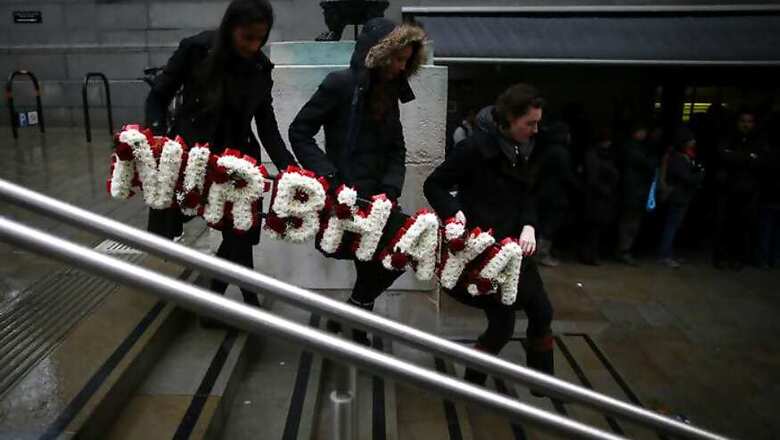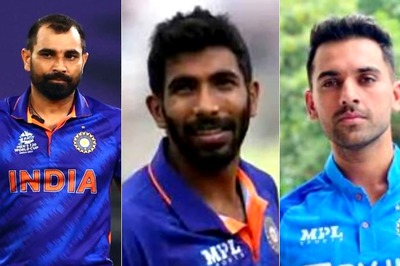
views
New Delhi: Sanjay Hegde, senior advocate and amicus curiae to the Supreme Court in the Nirbhaya case, has submitted his report to the apex court on Friday raising serious doubts on the merits of the evidence submitted by the prosecution based on which four convicts were sentenced to death.
Earlier, Raju Ramachandran who is the second amicus curiae in the sensational case had submitted his report questioning the procedure adopted to slap death sentence on the convicts in the sensational gang rape and murder case of 2012 that had shocked the nation. The senior advocate had concluded that there was “no fair trial for the accused in the case”.
Hegde told News18 that it is possible that only one person committed the crime and the others were being embroiled in the same.
The apex court will continue to hear Hegde’s report on Saturday, which points out anomalies in the dying statement the victim as well as the statement given by her male friend who was with her on the fateful night.
“For instance, the statement of the deceased’s friend which was of primary importance is discordant. His statement kept on improving and was embellished as if done to strengthen the prosecution’s case,” Hegde told News18.
Amicus curiae is an expert who is not a party to a case but who assists a court by offering information that is vital for the case to be decided in an unbiased manner. The decision on whether to admit the information lies at the discretion of the court.
Hegde said that while in the preliminary statement of the FIR filed on December 17, 2012, which was updated till December 19, 2012, the deceased’s friend mentioned only the outer description of the bus. But by the time examination and cross-examination of witness was done, he recollected specific details.
“He stated for the first time that Mukesh came and hit him with the rod and then went to the back and raped Nirbhaya. He also states for the first time that the bus slowed down, then driver changed,” he said.
“Although an FIR need not be an encyclopedia of the crime, it is treated as a statement of the witness/complainant and can be used to contradict the witness. The deposition of the friend suffers from significant omissions amounting to contradictions,” Hegde said.
The report also questions one of the most significant pieces of evidence that corroborates the complainant’s version -- the evidence seized from the accused. But Hegde has cast severe doubt on the veracity of such seizures.
“A closer examination of the recoveries will reveal that they themselves are suspect. Seizure memos are unsigned by independent witnesses, despite the fact that this was a case in which there was considerable public interest,” he said.
The amicus curiae also raised questions on Nirbhaya’s dying declaration and said that there were severe discrepancies in the statement. “In the first dying declaration, there were no persons named, but in the second one, after the arrests were made, the declaration mentioned a lot of names and in the third one, there was a sudden mention of Vipin,” he said.
Hegde submitted that while multiple dying declarations are permissible, and minor discrepancies can be accounted for, “the consistent improvement in the three dying declarations in the instant case makes the dying declarations collectively unreliable evidence, recorded to fit the prosecution’s version of the events”.
The apex court is expected to devote the whole of Saturday to hear the present appeals by the convicts and Hegde is also expected to conclude his submissions. But Hegde told News18 that concluding the submission on Saturday is unlikely and could take a couple of more days.
In the last hearing on November 7, Ramachandran had asked the apex court to set aside the death penalty awarded to the accused.
The court began hearing the convict’s appeal on April 4, 2016, almost two years after staying their execution.
Two of the four death-row convicts had written to Chief Justice TS Thakur and Justice Dipak Misra, stating that they do not approve of the defence counsel appointed by the court to argue their case before the apex court as the lawyers had given statements against them in the media when the news of the gang rape shook the country.
The trial court had in September 2013 awarded death sentences to the convicts. Six months later, the Delhi High Court upheld their conviction and sentence. All the convicts moved the apex court in 2014, which stayed their execution. Six people, including a juvenile, were convicted in the case, but one of them hanged himself in the jail. The juvenile was let off.
















Comments
0 comment